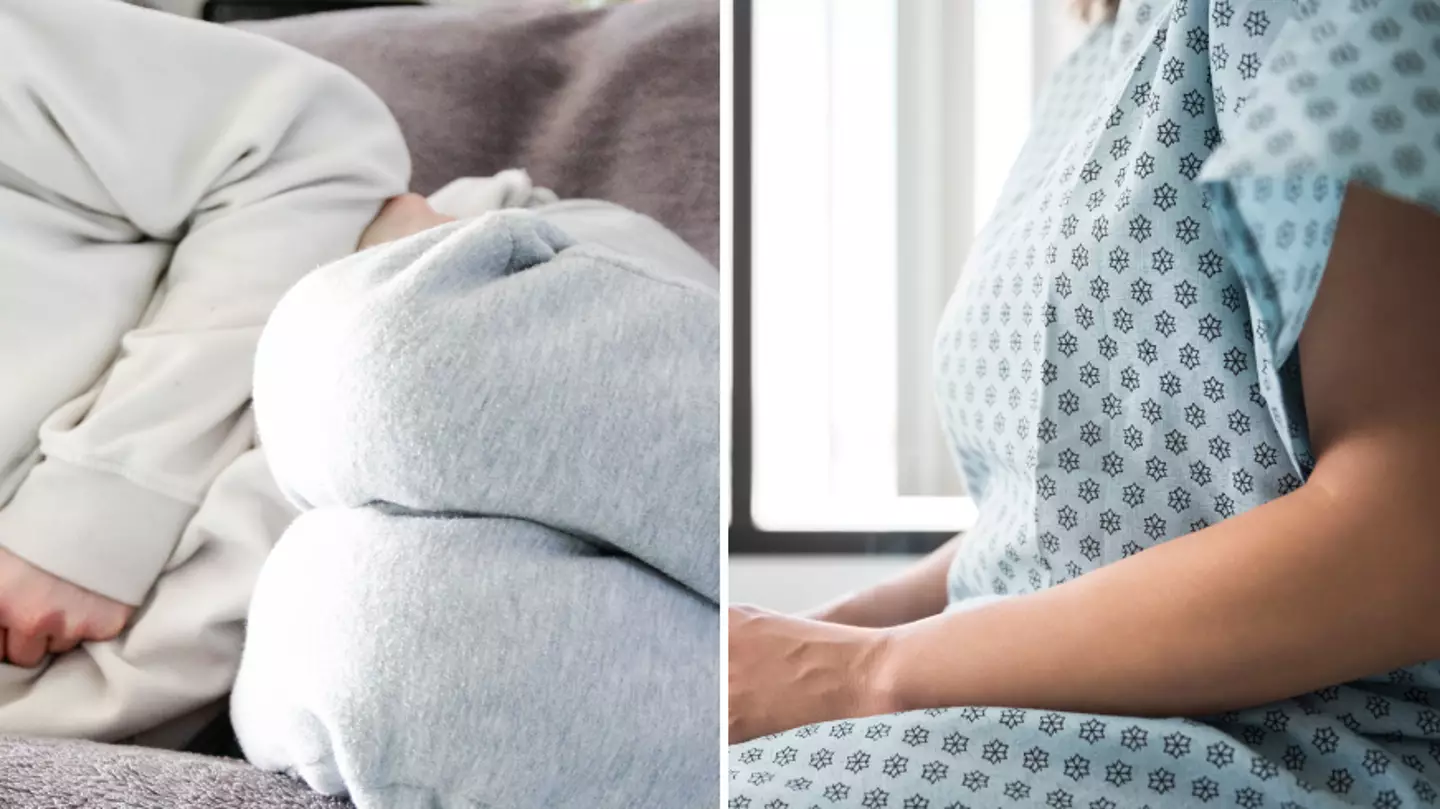
Topics: Endometriosis, Health
Endometriosis is described as being a notoriously impossible condition to diagnose.
'Because the symptoms can vary considerably, and many other conditions can cause similar symptoms', according to the NHS, many women around the world suffer in silence, or have claimed to have been told their ailing health is simply down to being just that - being a woman.
Such is the heartbreaking reality for UK primary school teacher Rebecca Carrington (whose name is a pseudonym), who claims she's been fighting for a diagnosis for years and has allegedly had her excruciating pains repeatedly dismissed by doctors.
Advert
Admitting the agony she's suffered often left her convinced she was suffering ovarian cancer at its worst, she claims she's been 'passed back and forth' from GPs, gynaecologists and gastroenterologists for the last 15 years, despite her local doctor even admitting that the 'likelihood' is that she has endometriosis.
The 26-year-old Year 6 professor has endured crippling torture from inside her womb and stomach since she first began menstruating at age 11 during her final term at primary school.
"I can't really remember a time before dreading getting my period each month," she told Tyla.
"I would be so scared of it happening because it left me doubled over in agony. I’d have to bring hot water bottles to high school and ask my teachers if I could refill them.
"I’d be sweating profusely, shaking and even threw up sometimes because the pain was so bad. I missed at least one day of school every month just from being in too much agony to get out of bed."
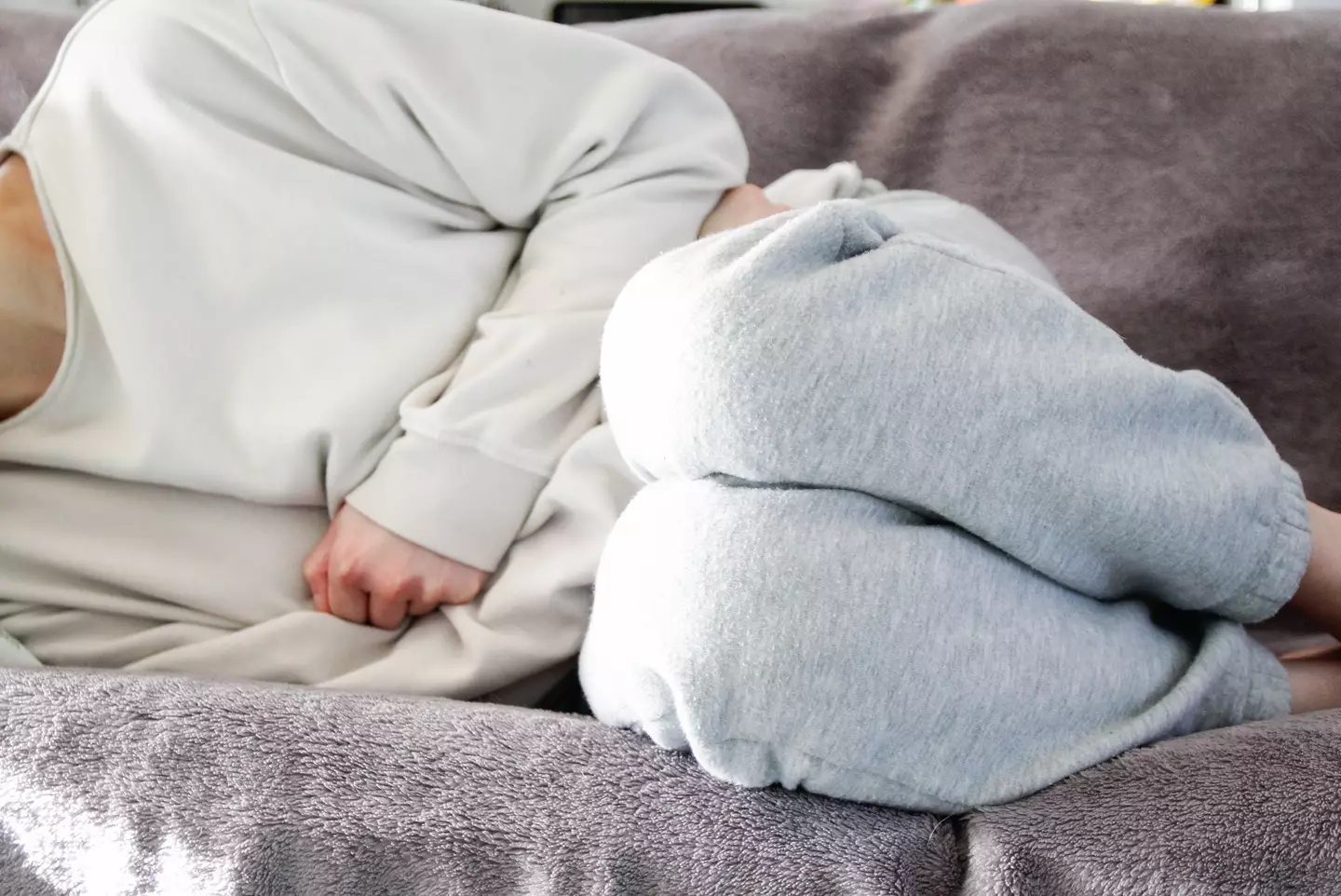
The Manchester-born teacher recalls taking a variety of drug-store pain relief medication, but claims that nothing would relieve her pain.
"There was also just so much blood every single day. It never let up or got lighter during my week-long cycle." she said. "I’d have to go to the bathroom every hour to change my pad or tampon, and I literally lived in fear that it would leak through my school uniform and I’d get teased, or people would get grossed out."
During her time in high school, Rebecca was diagnosed with menorrhagia – which is now defined as abnormal uterine bleeding with heavy or prolonged menstrual bleeding – and was prescribed mefenamic acid, which she says aided with the heaviness of her periods and somewhat subdued the pain.
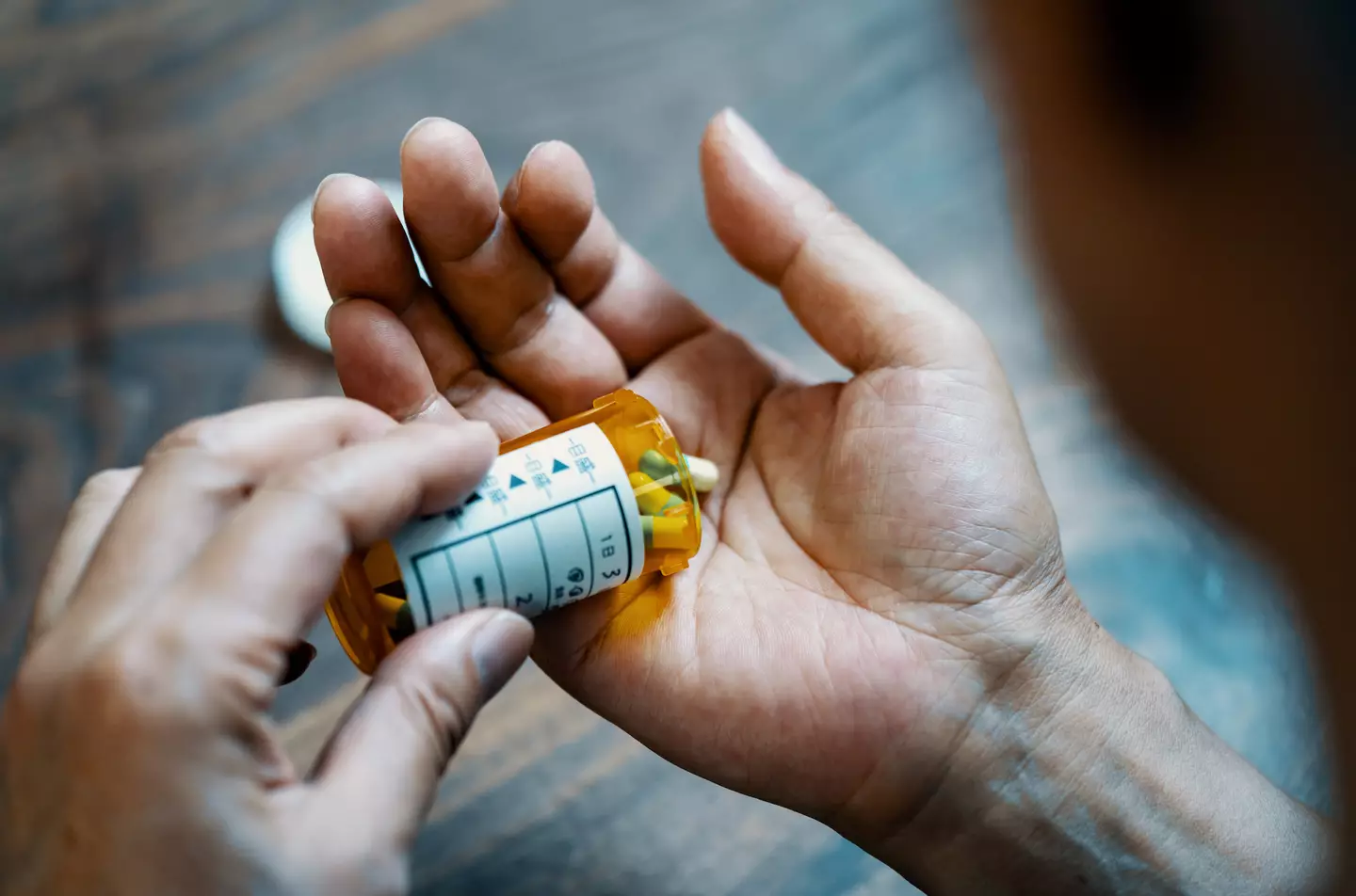
After a couple of years, however, the brand of mefenamic acid she’d been receiving was discontinued, and Rebecca says the various new packs she was prescribed weren’t as effective.
Her problem continued until she reached university, where she’d miss countless lectures or be forced to extend her coursework deadlines due to needing to stay in bed.
It was also whilst studying at the University of Liverpool that Rebecca met her boyfriend, Jack.
With Jack being her first long-term partner, the Primary Education student was having regular sex for the first time, and decided to begin taking the combined pill.
She hoped her new medication’s benefits would be two-fold – protect her from pregnancy and make her periods lighter and less painful – but it had the opposite effect.
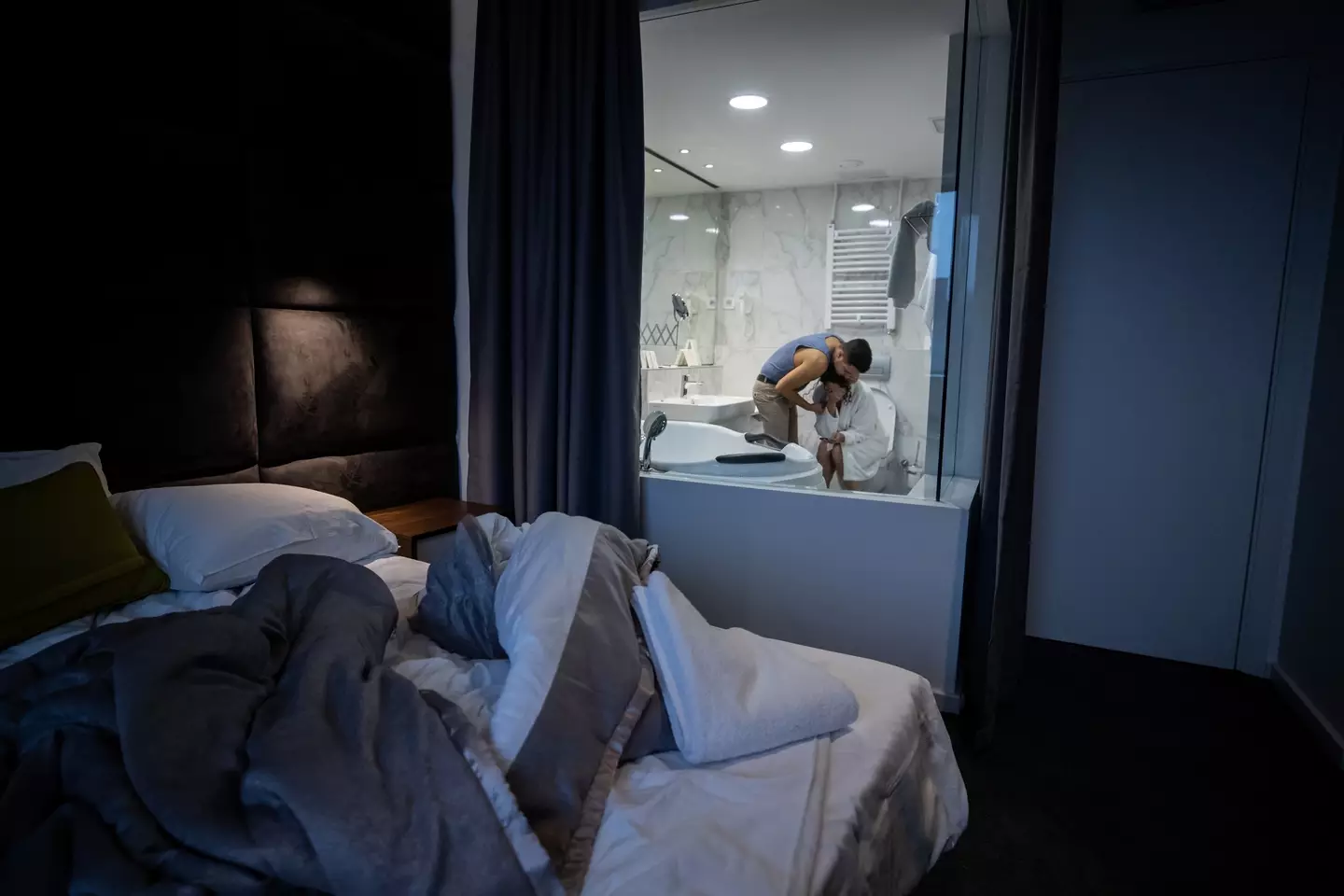
"Every single time we’d have sex, I’d be in pain. It would differ in terms of severity depending on my time of the month, but there would always be some sort of pain there," she tells us.
"At its worst, it honestly felt like I was being stabbed inside my vagina – I know that sounds horrible, but the sharpness of the pain was horrendous. At its best, there was always a dull ache, and whether I was on my period or not, I’d bleed after sex every single time.
"And on top of this, my actual periods remained the same heaviness and the pain got worse. Honestly, if I didn't take super strong painkillers, I'd think I was dying."
Rebecca adds that it was during her final year at university in 2018 that her ongoing health battle began affecting her stomach.
"As well as feeling pain in and around my uterus and lower tummy, I started suffering really badly with discomfort in my actual stomach. I’d have diarrhoea most days, and painful gas." she said.
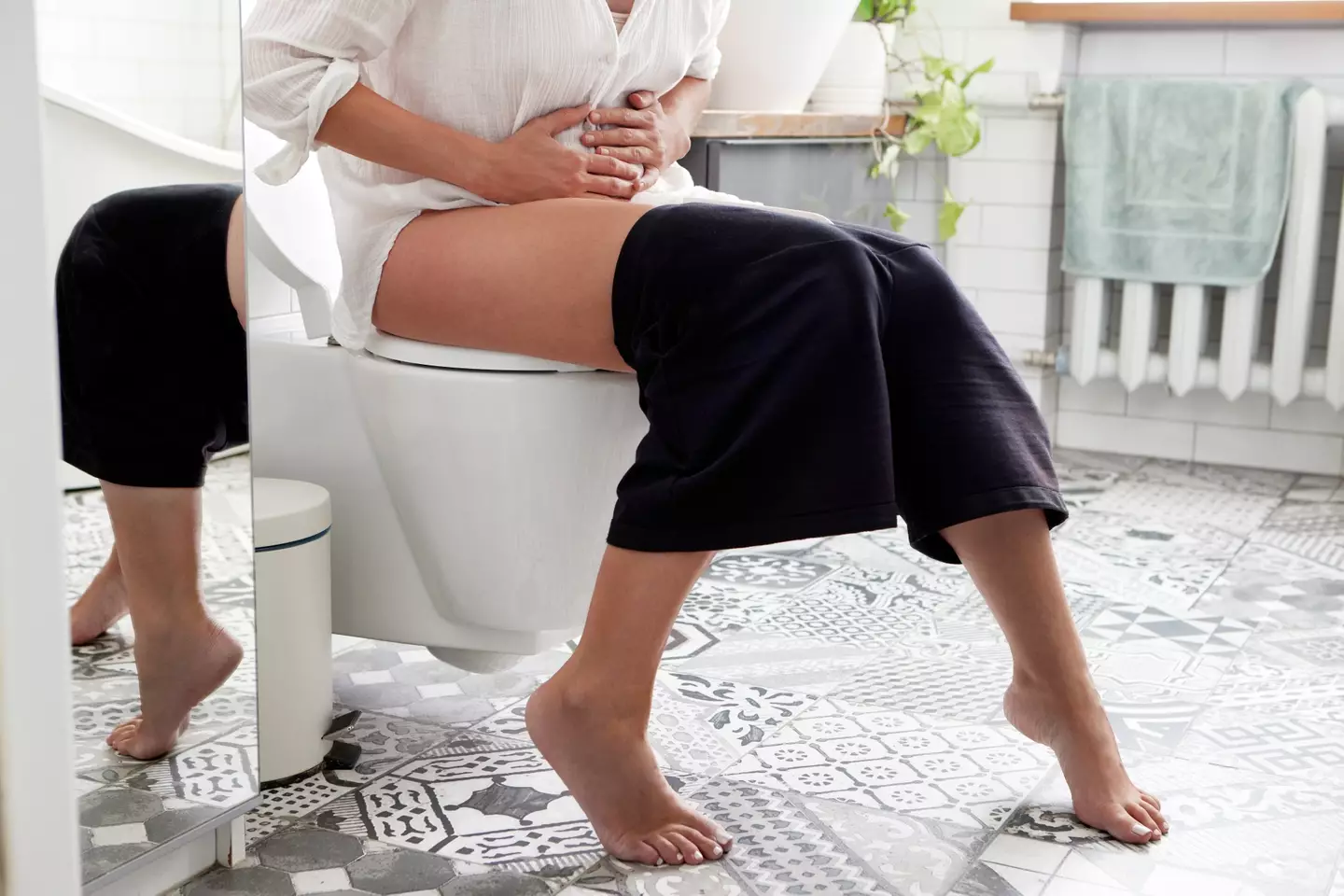
"I’d also get so unbelievably bloated - I looked pregnant. My stomach would feel so full and looked so round, even if I ate as something as small as a salad."
After she graduated, prior to starting her first job as a Year 3 primary school teacher, she thought it best to see a doctor about her symptoms.
Despite emphasising her painful periods and pain during sex, Rebecca claims that doctors insisted that something in her diet was behind her agony.
"I went for numerous rounds of blood tests where they’d test for coeliac,” she remembers. "Then, when they came back clear, I was told to cut out diary for three months."
When her agony continued, she was advised by medics to cut out sugar to see if that aided her recovery, and when that proved futile, it was even recommended that she attempt vegetarianism – a diet she instilled for two years.
"I hoped that one of these food restrictions would help but the pain and stomach discomfort only got worse over time." Rebecca said.
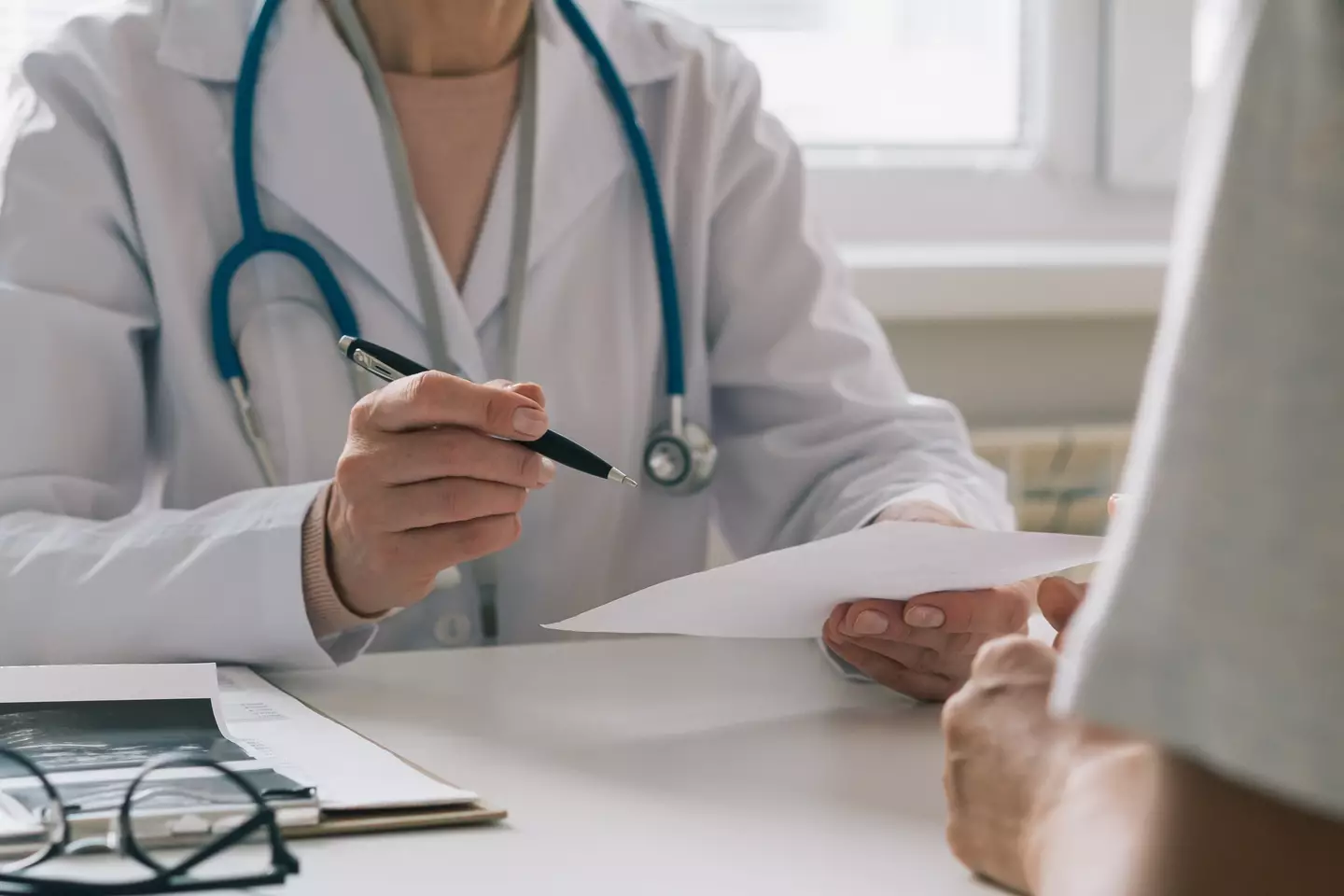
Rebecca started teaching in September 2019, but often found it difficult to focus on the job she’d dreamed of since childhood being that the level of pain was so bad.
"Honestly, there were times when I was convinced that the pain in my uterus was so severe that I thought I might pass out in the classroom. I had to work from behind a desk a lot so I could stay somewhat doubled over. I was worried about fainting or being sick in front of the kids." she continued to say.
"I was in so much agony I was convinced sometimes that I had undiagnosed ovarian cancer, but the fact it had gone on for so long proved it wasn’t that, which brought me some relief."
Rebecca went back to visit her GP on countless occasions, claiming that she often felt her issues were dismissed and not taken seriously.
After pleading with her local doctor’s surgery, she was referred to hospital to undergo a colonoscopy in February 2022, and was perplexed when the results came back all-clear some weeks later.
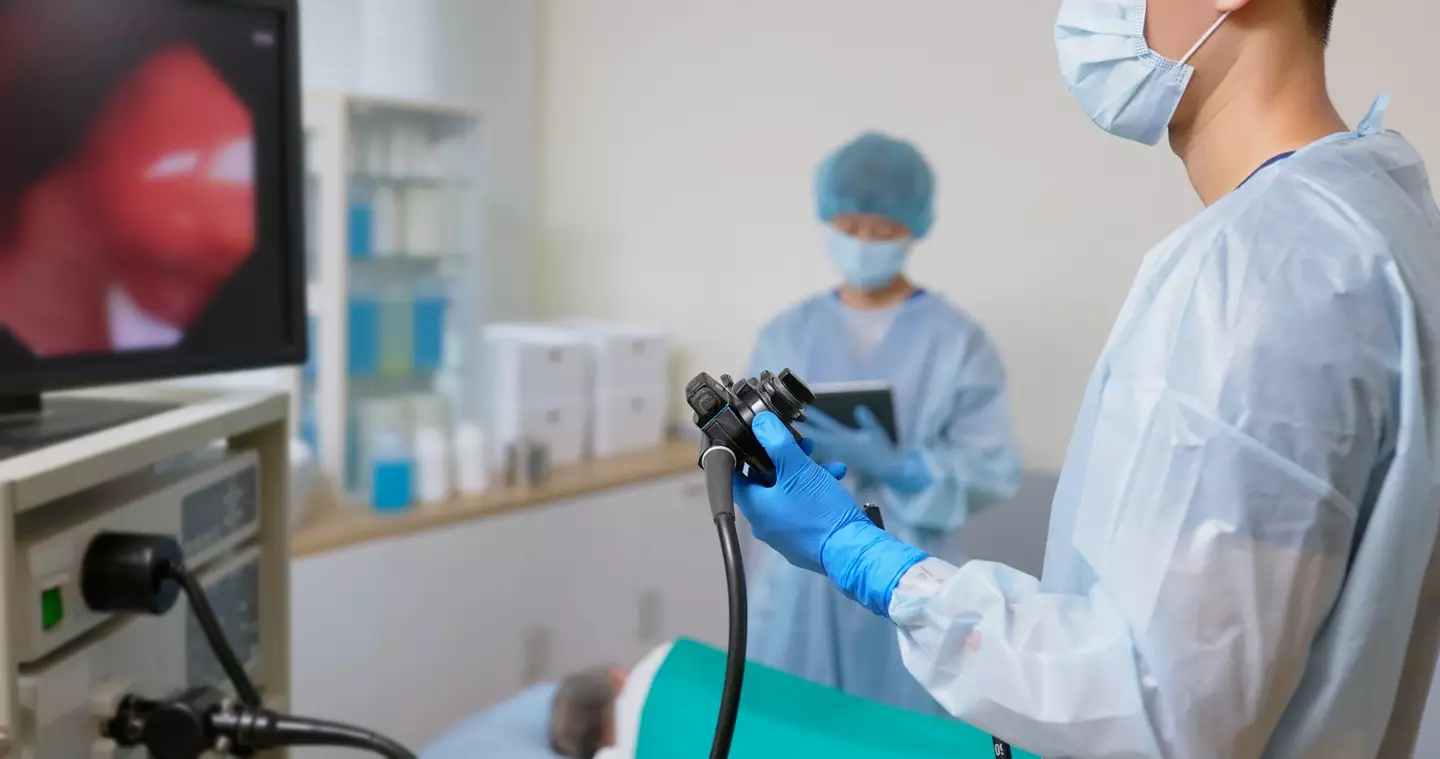
"I was told it was a very common procedure and not to be embarrassed, but being a twenty-something year-old girl and having to go through that was humiliating." she said.
Despite doctors allegedly insisting there was no need for her to continue searching for an answer for her agony - with staff allegedly repeatedly dismissing her discomfort for severe period pains - she was finally referred for an ultrasound scan six months later.
"It took so much insisting to even get that far," she claims.
In October that year, Rebecca received the call telling her that the scan had discovered cysts on her ovaries, but was allegedly informed that, though these may have been what was causing her such severe pain, it wasn’t anything to worry about.
"They told me that cysts on your ovaries are quite common and that they weren’t dangerous, but I’d been in pain for so many years, and these cysts are supposed to go away naturally after a few months, so I knew that couldn’t be it." she said.
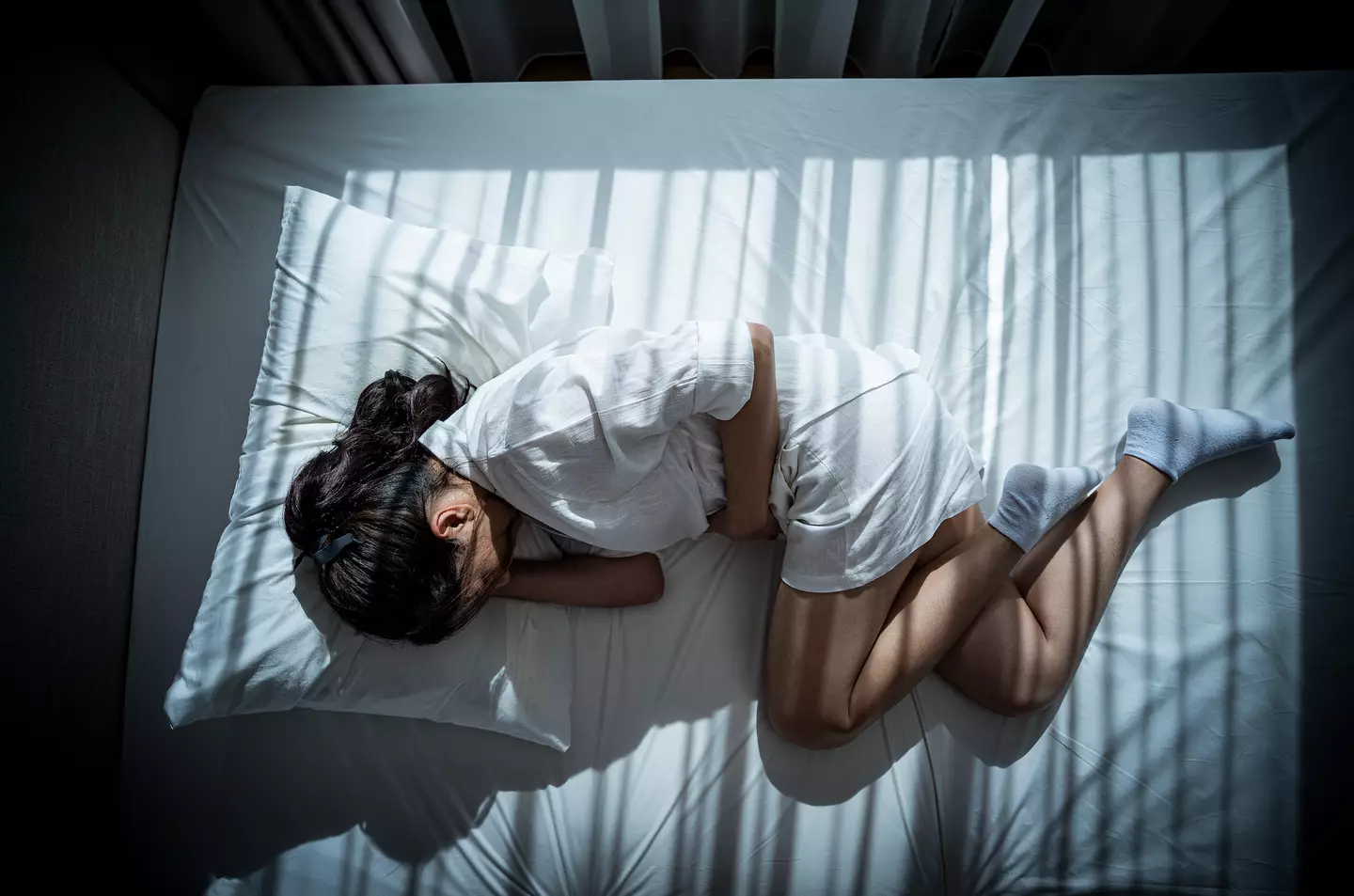
"I pushed them, asking them if I had polycystic ovary syndrome purely because the name sounded as though it made sense, but was told that people that suffer that don't actually get cysts.
"After doing some research, I became convinced it was endometriosis.
"Every single one of the symptoms was there, the agonising periods, painful sex, bloating, ovary problems. There was literally no other explanation."
Returning to her GP after Christmas following her scan, Rebecca relayed her concerns, and claims that her doctor explicitly told her that the 'likelihood' is that she was suffering endometriosis, but that it was nearly impossible to diagnose it.
"He refused to tell me outright that I had it," she claims.
"He said in his own words that I probably had endometriosis but he wouldn't officially diagnose me.
"I became so upset because I just wanted an explanation for this thing that had been the bane of my life for so many years. I almost burst into years in his seat. "Why couldn't he just say it?
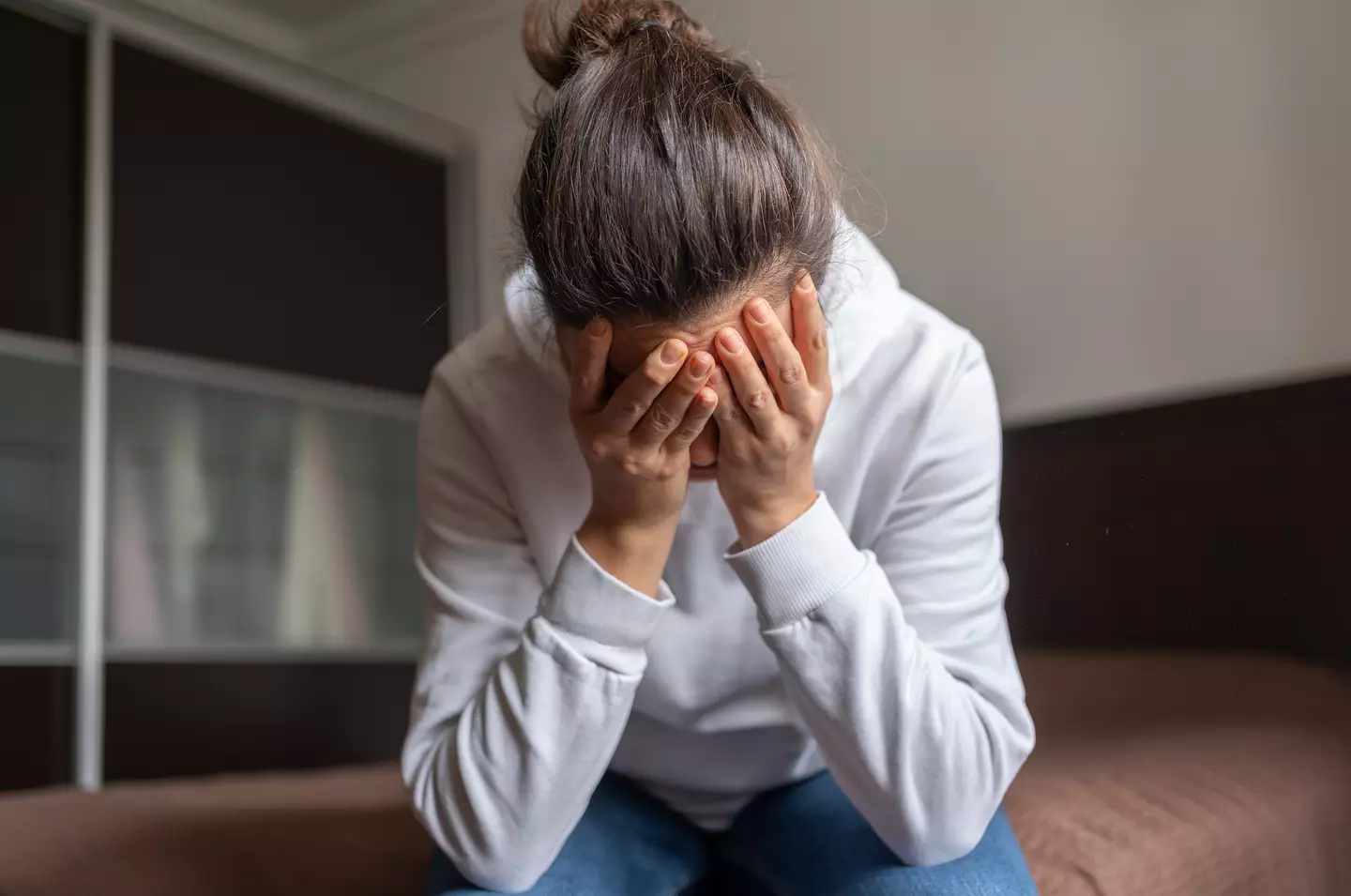
"I got the impression he thought I was exaggerating my symptoms, or that he thought this was just something that women go through. A 'girl's thing'."
She recalls: "I went home completely deflated and just cried into my boyfriend's arms all night. How long was I expected to just grin and bear this? I honestly couldn't see myself carrying on in this state of complete confusion and pain for the rest of my life."
In the year since her GP hinted at her possible ailment without diagnosing it, the now Year 6 teacher claims she has been passed back and forth from her local doctor's surgery to gynaecologists and then onto gastroenterologists.
"It literally feels like I'm going round in circles, and no one is willing to help me," she claims. "I don't feel any closer to an answer, but I know in my heart that I'm suffering with endometriosis."
"One of the worst thing is that I now know that endometriosis can affect your fertility, so if I do have it, I surely need to know what my options are?
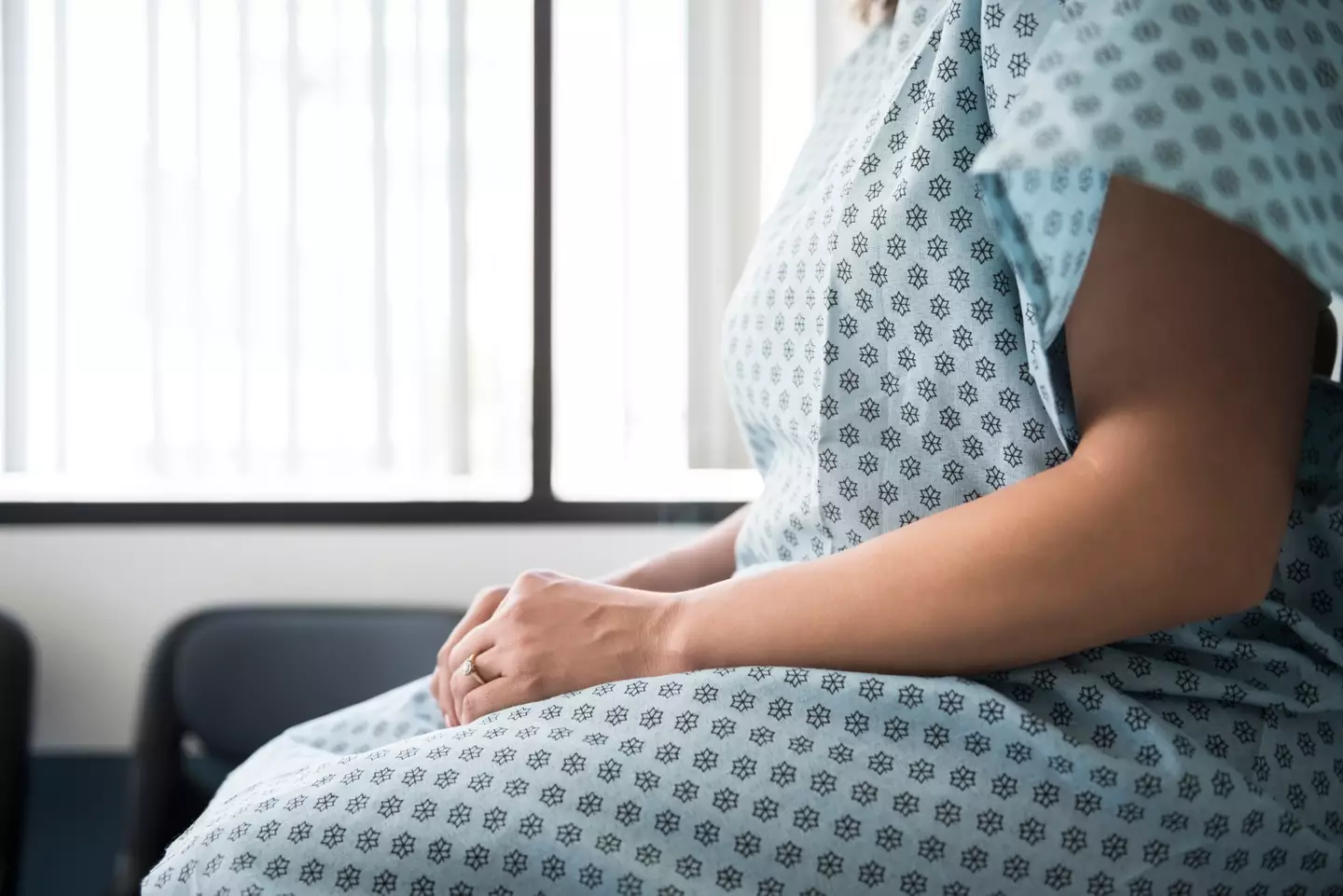
"What if the time comes that I want to start having kids and I struggle because of a condition which no one is willing to diagnose? It'll break my heart."
Despite opening up about her below-average salary, Rebecca has been forced to consider going private in the hope of receiving a proper diagnosis.
She tells us she's hoping to finally undergo a laparoscopy - a procedure which sees a surgeon pass a thin tube through a small cut in your tummy so they can see any patches of endometriosis tissue - with the NHS declaring this as the 'only way to be certain' that a patient has the condition.
"The thing is, I know there's no proper treatment for endometriosis. But at least my mind will be at rest knowing that that is what has been ruining my life, and I can envisage how the rest of my life will look." she said.
This Endometriosis Awareness Month, Rebecca is pleading with others who have symptoms similar to her not to give up, and to push for a diagnosis.